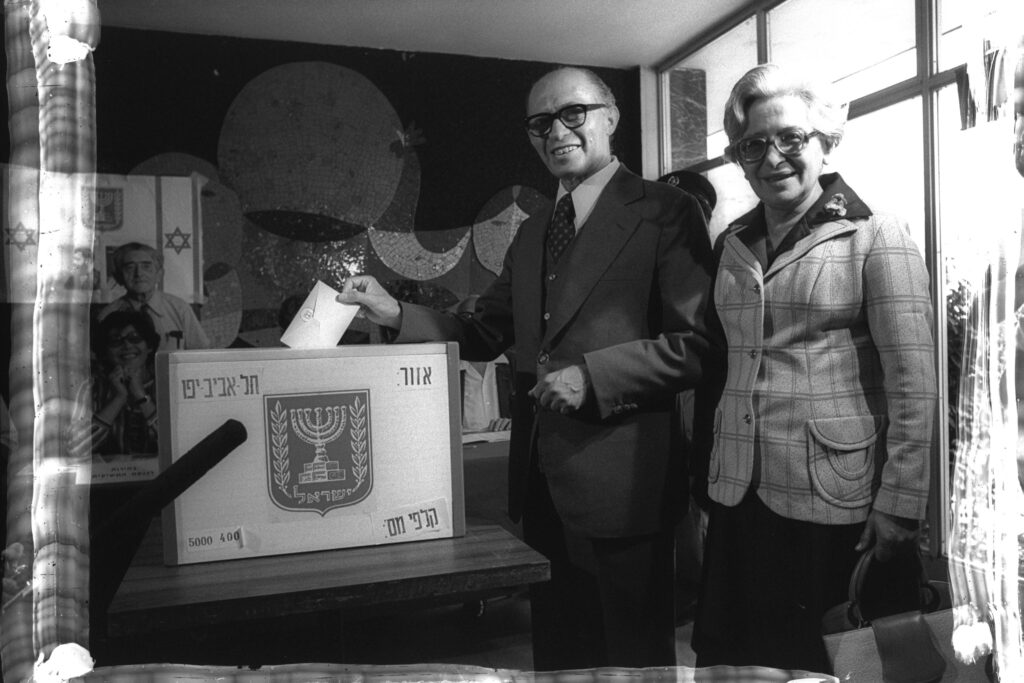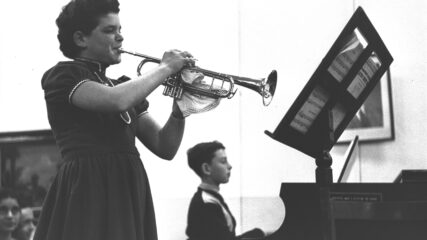May 17, 1977
For the first 29 years of Israel’s existence (with the exception of June 1967, when a national unity government was put in place leading up to the Six-Day War), a single political coalition, composed of left-wing, Labor-oriented politicians, has dominated the Jewish state’s government. Israel’s governments have represented a relatively narrow range of political ideologies, secular leanings and Ashkenazi cultural orientations. The 1977 election, known as the mahapach (upset), changes this reality, forever altering politics in Israel.
Before the 1977 election, the dominant Alignment coalition, composed of the Mapai, Ahdut Avodah and Mapam parties, faced no real electoral competition. With its roots in David Ben-Gurion’s socialist-Zionist political and ideological frameworks, the coalition formed the Labor Party in 1968.
The Likud coalition, with its roots in Ze’ev Jabotinsky’s Revisionist Zionism, is led by Menachem Begin, an outspoken opposition politician active in Israeli and Yishuv politics from his arrival in the Land of Israel in 1942. An adversary and critic of Ben-Gurion’s and of the Labor Zionist establishment, Begin forms the Herut party in 1948 with members of the Irgun defense organization as an opposition party in the Knesset. Herut makes its ideological positions clear early on, opposing the 1949 cease-fire agreements with Arab states in the aftermath of the War of Independence.
The 1977 election is called after Prime Minister Yitzhak Rabin resigns and dissolves the government in December 1976. The move is partly made to oust the National Religious Party from the government after they refuse to oppose a no-confidence vote in the Knesset in a dispute over new fighter planes being delivered to Israel on Shabbat. The Alignment is further hurt when Rabin is forced to withdraw as party leader in April and “retire” from the caretaker government he created in December 1976 because his wife, Leah, maintains an American bank account, then a violation of Israeli law.
Likud, created in 1973 at the initiative of Ariel Sharon, proves to be a more formidable political force against the Alignment coalition than previous right-wing parties. With the country in the midst of a severe economic crisis, Likud is bolstered by the support of Mizrahi and Sephardi Jews who feel marginalized and underrepresented by the Labor establishment.
Likud gains 33.4% of the vote to the Alignment’s 24.6%. The results lead to Likud winning 43 of the 120 Knesset seats. A government is formed with the National Religious Party (12 seats), the Democratic Movement for Change (15 seats) and Shlomzion (2 seats). The Likud victory results in Begin becoming the country’s sixth prime minister.
The orderly, peaceful transfer of power between political parties is a major milestone for Israeli democracy. Begin is credited with bringing the historic 1979 peace agreement between Israel and Egypt to fruition with the help of the United States. As of 2025, Likud is led by Prime Minister Benjamin Netanyahu and maintains its political and ideological connections with the Revisionist Zionism of Jabotinsky and the Herut party, officially dissolved in 1988.



